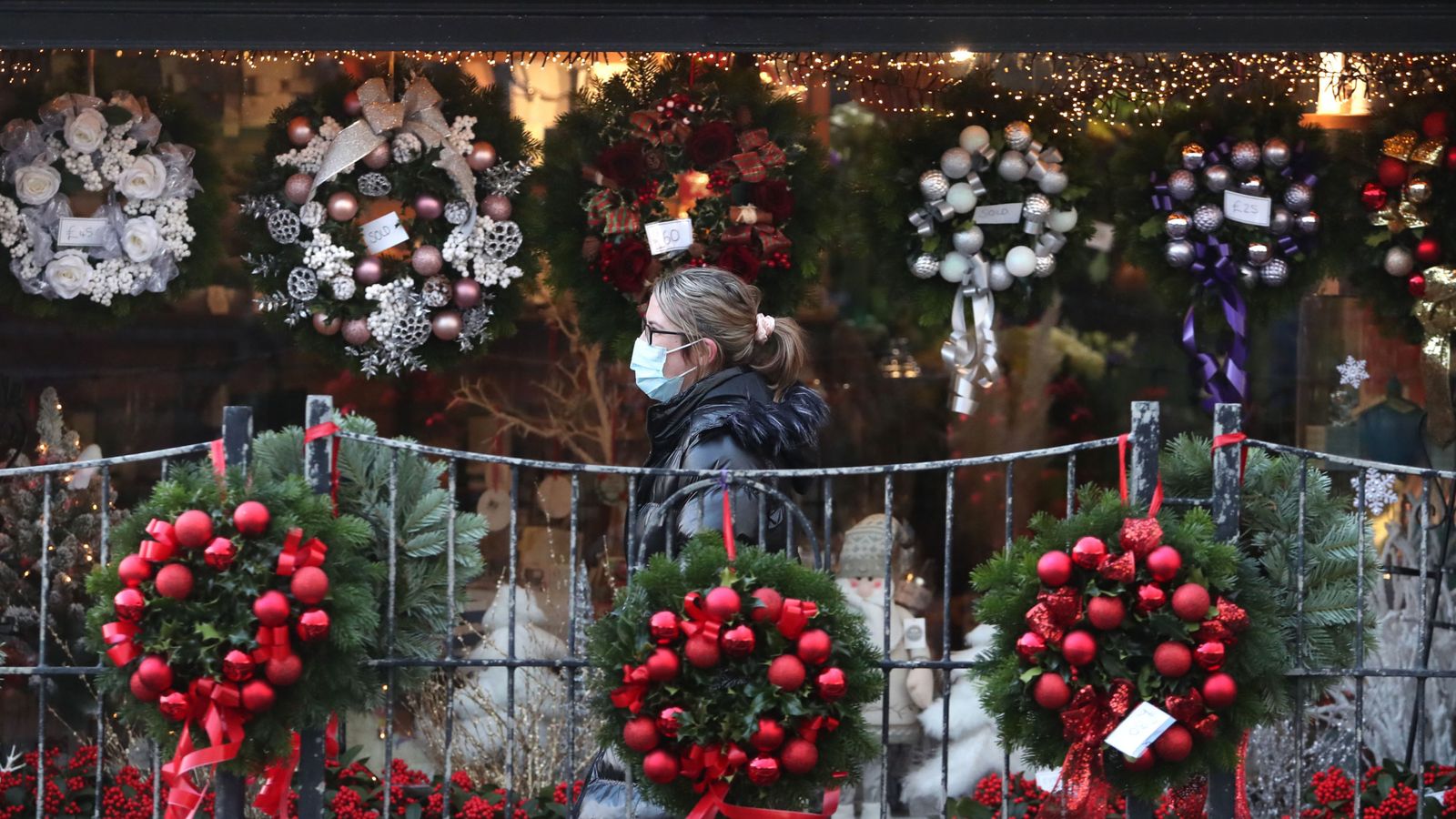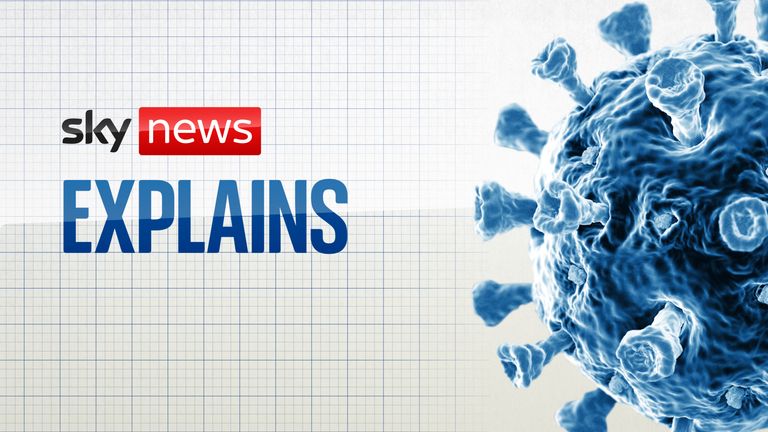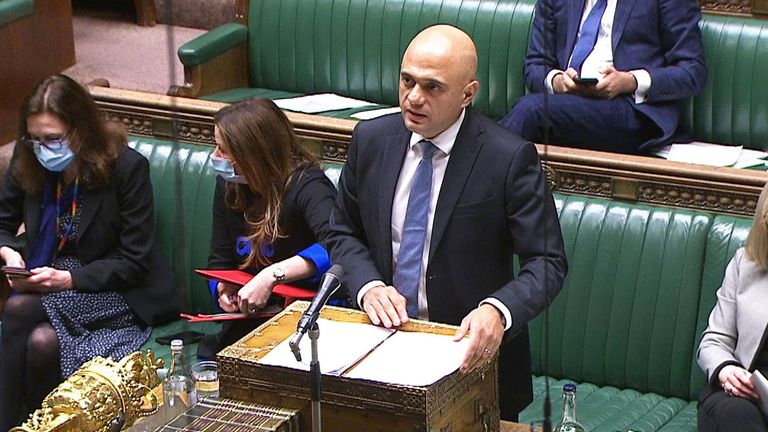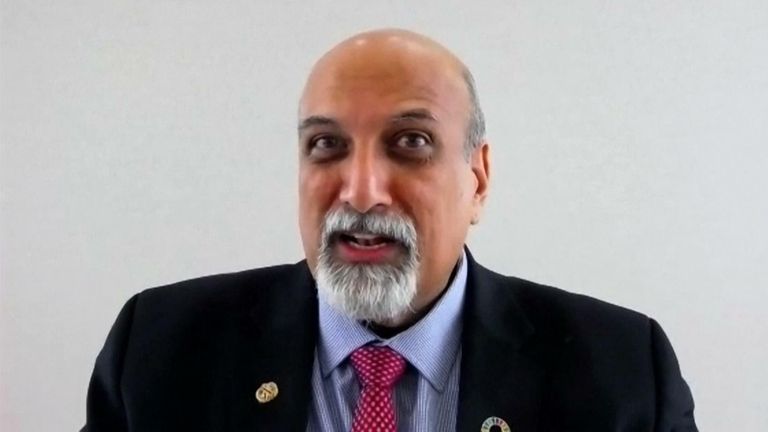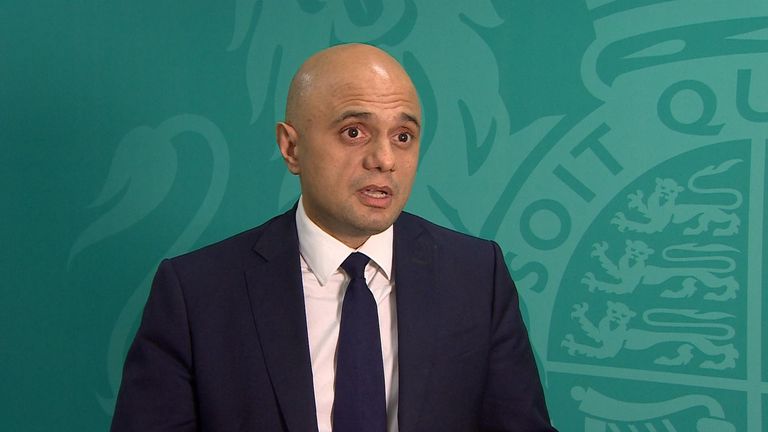There are growing fears a newly discovered COVID-19 variant, said to be potentially more dangerous than the one causing waves of infection around the world, could impact Christmas.
With just four weeks to go before millions of families are expecting to get together, the travel plans of thousands have been thrown into disarray.
It comes as the World Health Organization branded the newly named Omicron variant, also called B.1.1.529, a “variant of concern”, putting it in the same category as the Delta variant which has spread quickly throughout the world.
Follow the Daily podcast on Apple Podcasts, Google Podcasts, Spotify, Spreaker
The rapid spread of Delta is current responsible for sending some countries in Europe back into lockdown.
One scientist likened the situation in South Africa, where Omicron was first detected, to the emergence of the Alpha (Kent) variant in the UK last year, which effectively cancelled Christmas for most of the UK.
As vaccine manufacturers say it could be weeks before they could even test any adapted jab against Omicron, there are growing calls among the scientific community to take urgent action quickly.
Professor Sharon Peacock, director of COG-UK Genomics UK Consortium and professor of public health and microbiology at the University of Cambridge, describing the situation in the South African province where the variant is being studied, said: “This situation is reminiscent of the epidemiology of Alpha in Kent around a year ago.
“There was a surge in cases, but it was not clear whether this was due to one or more super-spreader events or was associated with a more transmissible virus. The important difference now is that we have effective vaccines, and considerable learning about variants has also accumulated since then.
“There are two approaches to what happens next: wait for more scientific evidence – or act now and row back later if it wasn’t required.
“I believe that it is better to ‘go hard, go early and go fast’ and apologise if mistaken, than to take an academic view that we need to reach a tipping point in evidence before action is taken.”
Vaccine manufacturers have expressed confidence that they will be able to rapidly adapt their jabs if the Omicron variant spreads despite early evidence it brings an increased risk of reinfection.
Pfizer and BioNTech said they expect “to be able to develop and produce a tailor-made vaccine against that variant in approximately 100 days, subject to regulatory approval”.
Moderna said it has advanced a “comprehensive strategy to anticipate new variants of concern” and Novavax added it has already started creating a COVID-19 vaccine for B.1.1.529 which would be ready for “testing and manufacturing within the next few weeks”.
When he was asked on Thursday what the emergence of Omicron would mean with Christmas approaching, as he imposed the new travel restrictions, Health Secretary Sajid Javid said: “We’ve got plans in place, as people know, for the spread of this infection here in the UK and we have contingency plans – the so-called Plan B.
“But today’s announcement, this is about a new variant from South Africa – it’s been detected in South Africa and Botswana – and this is about being cautious and taking action and trying to protect, as best we can, our borders.
“From what we do know there’s a significant number of mutations, perhaps double the number of mutations that we have seen in the Delta variant.”
So far, as of yesterday, Mr Javid said there were no detected cases of the Omicron variant in the UK, but it has been detected in Belgium – after being found in Botswana, Hong Kong and Israel and possibly Germany and the Czech Republic.
Other experts said it was inevitable that Omicron, or another variant, would replace the Delta variant and its offshoots, which currently account for almost all UK cases.
Professor Mark Woolhouse, professor of infectious disease epidemiology at the University of Edinburgh, said: “No one should be surprised by the appearance of a new SARS-CoV-2 variant.
“The Delta variant will be replaced eventually, whether by this latest new variant – B.1.1.529 – or by some other one. Sooner or later we expect to be confronted with a variant that is even more transmissible than Delta, or that is better at evading natural and vaccine-induced immunity, or both.”
Not all scientists expressed the same degree of concern, however.
Professor Sir Andrew Pollard, the director of the Oxford Vaccine Group, expressed cautious optimism that the range of currently available vaccines could prevent serious disease from the Omicron variant.
He told BBC Radio 4’s Today programme that most of the Omicron’s mutations have similarities to those in other variants, adding: “That tells you that despite those mutations existing in other variants the vaccines have continued to prevent serious disease as we’ve moved through Alpha, Beta, Gamma and Delta.
“At least from a speculative point of view we have some optimism that the vaccine should still work against a new variant for serious disease but really we need to wait several weeks to have that confirmed.
“It’s extremely unlikely that a reboot of a pandemic in a vaccinated population like we saw last year is going to happen.”
